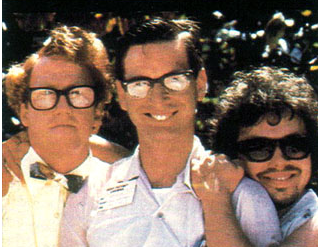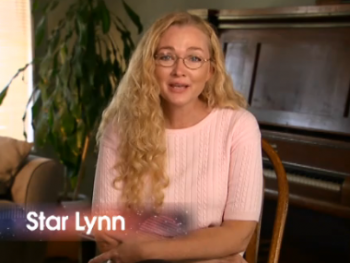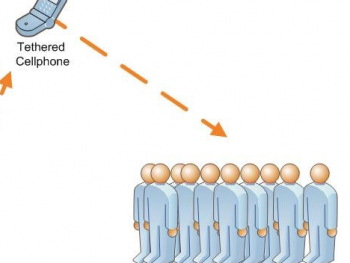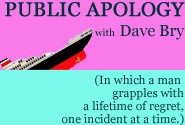The Great RSS Debate Rages in Nerddom

A lot of nerds are talking about RSS feeds right now (okay, non-nerds: sites that you like visiting can be delivered to a single place, all together-one that is either browser-based, like Google Reader, or application-based, where you open it up and all your websites are just hangin’ out there) and whether they should be “full” or “truncated.” Recently, one rather large blog site called Gawker moved from a full RSS feed to a truncated one, and this is very upsetting to these people who care about such things and I love watching them rumble. (One person predicts that such a change has to do with cleaning up Gawker and making it a mega-news site; but then no one really understands why Gawker’s owner Nick Denton does what he does.) The good news out of all of this is this fun stat of the day: “after the Guardian moved to full RSS feeds in late 2008, its web traffic grew dramatically, from 25 million to 37 million monthly uniques.” If you’d like to learn more, go for it. Nerd.
The New Deal Denialists
Chris Lehmann’s Baffler essay on the New Deal denialists is available online. Go read it.
Grossout Anti-Smoking Ads Now More Vomit-Inducing
Mayor Bloomberg, who must not have heard the gospel about cigarettes, yesterday trumpeted the city’s latest anti-smoking campaign, which is clearly designed to make Saw look like Up. If you were troubled by the last round of spots discouraging a perfectly legal habit, get ready, because they’ve kicked it up a notch. I have to believe that within five years every pack of cigarettes sold in this city will be mandated to include a piece of diseased lung affixed right to the front. Sigh. I wish we were more like the French. [NOTE: Pay close attention to this clip for the appearance of Awl pal Meghan Keane, who is dubious about the ads’ effectiveness.]
Really? Mitt ROMNEY?
Ben Smith reports that Mitt Romney’s No Apology: The Case for American Greatness will make its debut on the New York Times bestseller list in the number one slot. I find this vastly more alarming than the continued popularity of the Sarah Palins and Glenn Becks out there. I mean, entertainment is entertainment. But if enough people are willing to shell out $25.99 for a book by someone as soporific and robotic as the former governor of Massachusetts this country is far more desperate than I thought. Hopefully it’s all bulk sales.
Boxed In: "First Love, Second Chance" and Short Periods of Exquisite Felicity
by Zachary Woolfe

The oldest precursor in Western culture to the new six-week TV Land reality series “First Love, Second Chance” is a play. It tells the story of a couple deeply in love, one of those formative, life-changing early relationships, not to mention the boy’s first kiss. The relationship ends abruptly, as intense relationships often do, when the boy is unexpectedly sent far away. Many years pass, and both the boy and the girl are physically transformed beyond recognition. But such, we are meant to feel, is the strength of their bond, that when they meet again, without even knowing each other’s identity, they fall in love and marry.
The play is Sophocles’ Oedipus Rex, and the fact that the romantic leads are mother and son, their union fated to end in tragedy, only adds to the intensity of this first depiction of life as a romantic odyssey, a long, circuitous journey back to the person that you started with.
This story, usually provided with a more upbeat ending, appeals to our most profound hopes: that we can return and make a fresh start, that the past can be reversed, that we won’t fuck it up this time. It’s change so that any change never actually has to happen, a fantasy in which there are no consequences and nothing’s irrevocable. The plot is often used, as in Sweet Home Alabama, to associate the return to a first love with the embrace of quiet, small-town America or “simpler values.” And even when the story of the reunion is ultimately subverted, like in Atonement, our perception of agonizing loss is a result of how much we wanted it to succeed. In all its guises, it’s an omnipresent part of our lives and culture, both high and low, from Love in the Time of Cholera and Great Expectations to There’s Something About Mary and “First Love, Second Chance.”
* * *
The show is on the lower-rent cable side of reality TV, which means it often comes close to an evocation of actual reality. Still, it maintains odd and stringent conventions: two former lovers have a first (re-)meeting, always, always over dinner; a couple of days in one person’s city; a couple of days in the other person’s; the respective packs of friends interrogating each member of the couple; precisely a week to mull; and then video messages are exchanged, which give “final answers.”
There’s a lot of reality-show urgency, sentences with one hysterically emphasized word: “I have to talk to him about that,” “She drops a bomb on him.” And there is the matchless language of self-help: “We’re in different places,” “Now that you’re in the same place I am,” “I’m finally at a place in my life where I’m ready for a relationship.”
Despite all the severity of the conventions, things can get real poignant, real fast. And the producers saved the best for first. In the premiere episode that aired last night, we learned that back in the late seventies, Garry was an exchange student from Australia living with Star Lynn’s family in California. Banned from dating any of the family’s daughters, Garry nevertheless developed a deep bond with Star Lynn. When her mom interrupted and misinterpreted a supposedly platonic wrestling session between the two, however, Garry was kicked out and returned to Australia. Now, thirty years later, six kids between them, they’re back together for a week. They’re so charming and smiley that the outcome is hardly ever in doubt, and, indeed, at the end he proposes marriage and moves to the States to be with her.
Star Lynn isn’t new to marriage; she’s been divorced twice. In fact, it’s that experience that motivated the initial attempt at reunion. “When marriages fail,” she says, earnestly, “you go back to thinking about your first love.” Well, you do, unless you don’t. Before reuniting with Garry after three decades, she worries, earnestly, that “we may be different people.”
But actually each has a reluctance to see the other as a different person at all. Garry says, while talking to Star Lynn, “I could only see this sixteen-year-old girl that I knew.” And then he says it again: “I’m talking to a woman, but I’m looking and seeing the sixteen-year-old girl that I knew.” And then he says it again. When Star Lynn is playing shy about kissing him at the Sydney Harbour, he comments in voiceover, “I think she’s just being the sixteen-year-old girl I knew.” After touring Garry’s bare-bones apartment, Star Lynn blissfully concludes, “He’s still a big kid.” And when one of his friends asks her a pretty rational question-what attracted you again to Garry?-Star Lynn looks at her confusedly and explains, “Well, he was my first love.”
There’s a disturbing tendency among the people in “First Love, Second Chance”-and wherever this plot occurs-to be both fascinated with and perpetually surprised by the past, to use their reunion as a way of avoiding or denying lives that have become less exciting and more grown-up. As the guy in the third second episode says when he reflects back on his long-lost love-affair, “Pam was the only thing going right in my life.” At age 37, he currently works as a cabana boy.
* * *
Nineteenth-century novelists were obsessed with this reunion plot, which hid an anxiously conservative impulse behind the superficial change involved. The books of the period are full of young girls falling in love with the wrong (read: poor) guy, and then spending the rest of the book getting him back, but only after he’s come into some property. And lest we think we’re not still living in the Victorian era, the women people of “First Love, Second Chance” are always reflecting on the importance of The Apartment. “A person’s living space says a lot about them,” Pam Chris admits matter-of-factly in the second episode, before Pam complains that his Miami place is too small. Their reunion is uncertain, in fact, until Chris seals the deal: Pam returns four weeks later to his new place, which is a comparative palace. Her pleasure while she tours it, ooh-ing and ahh-ing, is almost erotic, and her conclusion? “I think Chris and I were definitely meant to be.”
It was Jane Austen who could understand both the irresistible appeal of and undeniable problems with this story. In Persuasion, her final complete novel, Anne Elliot was engaged to a naval officer named Frederick Wentworth when she was 19. It was, we are told, “a short period of exquisite felicity.” Though he is confident in his prospects, Anne is successfully persuaded by her friend to abandon a match thought unworthy of her. But eight years later, when Wentworth-now a rich commander-unexpectedly reappears in Anne’s social circle, “she starts to believe in second chances,” as the back cover of the Oxford paperback puts it.
Anne’s not immune from reading any future relationship between them as a revival of “the tenderness of the past,” but neither is the joyful finale exactly a stabilizing move. Anne, after all, isn’t going to a beautiful home; she’s going to sea-and the book ends with the premonition of a future war. She really does have her cake and eat it, too, and Austen both placates and taunts us with a final vision of balance between past and future, insecurity and stability. As with the ambiguous ending of Great Expectations, we’re left feeling both exhilarated and queasy about the outcome we desired, and, as far as how to handle our own lives, agreeing with Anne Elliot: “She hoped to be wise and reasonable in time; but alas! alas! she must confess that she was not wise yet.”
* * *
The adorableness of the stories in “First Love, Second Chance”-and how much we find ourselves wanting them to succeed-is a distraction from the unsettling spectacle of grown people obsessively seeking to live in the past. The show skews towards “successful” reunions, but both the stories that turn out “well” and the ones that “don’t” are fundamentally the same, arising from the same impulse, that we need to get older to finally understand how much more we knew when we were young.
In the third episode, Shane and Angela are reunited after fourteen years, but both parties have arrived with agendas. Before they can start their future together, Shane wants Angela to accept responsibility for alleged infidelities at the end of their original relationship. Angela, for her part, wants Shane to show he’s changed. Or, not “wants”: “I would need him to be vulnerable. I would need him to show vulnerability.”
The episode disintegrates into endless circular recriminations. After one session, Angela says, “We talked about the past, we rehashed.” And she begs, “Let’s put the past behind us.” After another, she claims, “We have successfully put the past behind us.”
Shane disagrees: “We never really finished that discussion.” It becomes clear that neither has any real interest in anything but the past, just as sweet Garry in the premiere keeps imagining that a 46-year-old woman is a 16-year-old girl. The denizens of the show are constantly “getting over” the past, but only in order to keep reliving it, loudly seeking closure while wanting anything but. The art of losing, it turns out, is really, really hard to master.
Zachary Woolfe writes about culture here and for the New York Observer.
King And Queen Of France Latest Victims Of Internet Experiment

You may have seen some news concerning French President Nicolas Sarkozy and his wife, Carla Bruni, who are supposedly both having affairs (perhaps delivered with the headline, “French People Being French”). How did this fascinating story become a worldwide sensation?
The rumours that both the Sarkozys were having affairs began on Twitter and spread from blog to blog in France in recent days. They appeared, somewhat dismissively, in a blog on the site of the Sunday newspaper Le Journal du Dimanche, but have never appeared in print in France.
The news magazine L’Express said on its website last night that the rumours had been started by a “journalist intern” or trainee as an exercise to test the gullibility of the media. It said that the reports had been picked up by the blogs of “respected” web journalists but only as a “running gag”. The blogs had, inadvertently, given credence to the rumours and allowed them to make the leap into Italian and British newspapers, which reported this week that “all of France” was chattering about the alleged affairs.
Put this alongside the recent John Roberts retirement rumor and it seems like pretty much every salacious story we read in the media these days is basically somebody trying to prove how easy it is to get a salacious story into the media. I bet that boobcheese lady isn’t even lactating.
Smoking Is Awesome

Good news, smokers! A new study shows that you are reducing your risk of developing Parkinson’s disease simply by enjoying your favorite hobby, the near-perfect act of lighting a cigarette and drawing its comforting smoke and nicotine deep into your lungs. That’s right, not only does smoking steady your nerves, sharpen your focus, and soothe your anxieties, it also helps to prevent movement disorders. Even better, smoking rewards commitment: The longer you smoke, the less likely your chances of developing Parkinson’s actually are. As someone who has his twenty-fifth anniversary with sweet, inhalable tobacco coming up next year, this is the kind of gift I never expected from the marvelous companion that is nicotine, which makes it all the more meaningful. Smoking is also thought to prevent Alzheimer’s. And there is a wealth of scientific evidence showing that people who smoke are intrinsically cooler than non-smokers. It really is a miracle drug, isn’t it?
The Reputation Market Gets Closer with Film Futures

So if you are reading about this “real-money movie box office futures exchange” being created by Cantor and thinking it is the weirdest thing imaginable, you’re not wrong! Mostly because the terms of trading seem insufficient-”contracts on the Cantor exchange will trade at $1 for every $1 million a movie is expected to bring in” with just long and short positions-to make it worthwhile to trade on the box office expectations of films. But this could go extremely well. We refer you back to the reputation market, which draws nearer every day. Monetizing popular expectations? Check. A database for everyone to check in with and mess around with the hourly surge of popular judgment? Check! A currency tied to, um, nothing related or tangible at all? Hoorah! Finally we’re living in the future.
The News Just Keeps Getting More Disgusting Every Day

“Happily, the bugs need to eat only once a month or less, he said. ‘It’s not so bad. You can hardly feel it.’ A few days later at his home, Mr. Ecker demonstrated, tipping a vial of bugs onto his forearm, which the critters latched on to like hungry newborns, their bodies quickly swelling with blood.” It gets grosser-so you may stop reading here or come and soldier bravely on with us.
Okay:
“Meanwhile, Mr. Rincon was cleaning vials, ensuring that the dogs learn to detect only live bugs and eggs. He swept the debris-bedbug feces, maybe some eggs-into plastic cups, which he filled with water and stuck in the freezer, since extreme temperatures are proven bug snuffers.” The Times trumps all previous disgusting bedbug stories with this report on Jeremy Ecker, who trains bedbug-sniffing dogs for the pest-detection company that he and his partner, Oscar Rincon operate out of his home. And yes, once a month, Ecker feeds the specimens he raises for training on his own blood.
Seriously, it’s rough going, consider yourself warned before clicking.
Between this and the boob-milk-cheese lady story, we are definitely sending a signal to the machines: It’s almost harvest time.
Dear Emily

Dear Emily,
I’m sorry for wearing sweat pants to our first dinner date and for getting stoned before meeting your parents for the first time.
This was in 1999, before we were married. We’d been friends for a couple years at that point, and had recently started seeing each romantically-the result of a particularly drunken night at the WXOU Bar on Hudson Street, near where we lived in the West Village. I’d asked you out for a first proper dinner date, to Hangawi, a fancy Korean restaurant on 32nd Street.
It’s funny now to think about what I was thinking as I got ready to meet you. It was a Saturday, and I had been wearing a pair of green sweatpants that I used to wear on weekends. They were the kind that George Costanza used to wear on Seinfeld, the kind that Jerry once said announced to the world, “I give up. I can’t compete in normal society.” It occurred to me that I might change into something else, but I stood in my bedroom and thought for a minute and decided against it. I put on a white polo shirt and my Converse All-stars and walked out the door.
It wasn’t that I was trying to feign ambivalence, to give the impression I didn’t care enough to put on pants with buttons and belt-loops. I had made it very clear, in fact, that I wanted us to be girlfriend and boyfriend. If anything, you were the one who took some convincing. (Glaringly easy, in hindsight, to see why.) My thinking, as best I can explain it, was more along the lines of “take me as I am.” I was a guy who wore green sweat pants on a Saturday. I wanted to make a good impression, but changing pants for that reason felt wrong. Like I’d be faking it, presenting myself as someone I was not. This type of thinking makes very little sense to me now and is derailed by something as simple as the fact that I certainly didn’t wear those sweat pants exclusively. I had lots of other pants, many of which I often changed into before dinner without much thought at all. But that day, I felt myself in the hands of fate: These were the pants you put on this morning, these are the pants you shall wear tonight.
I don’t know. I used to be really superstitious, too. And that’s just a terrible way to live. I was smoking too much pot those days, I suppose.
Which brings me to the second part of this apology. A couple months later, our relationship having miraculously survived my sweat pants, you’d arranged for us to go to dinner with your parents-my first time meeting them. Bored, sitting around my apartment that afternoon, I came to the same kind of question as before: Here was a situation in which, on any other day, I would be smoking pot. Should the fact that I was soon to be meeting these important people, the parents of the woman I was falling in love with, should I let that change my routine? I knew that I’d be brighter-eyed and clearer in conversation if I refrained, and I definitely wanted your parents to like me.
But then I thought, well, the way things are going, chances are I’ll be spending a lot of time around these people in the future. There would be lots of days like this. I wasn’t planning on making any major changes to my personal lifestyle. They might as well get to know me half-lidded and cloudy-headed. I packed a bowl.
Dinner went fine. Your parents turned out to be groovy 60s-types anyway. Towards the end of the evening, after I recognized a reference one of them made to the Steve Martin-Lily Tomlin movie All of Me, and mentioned that it was as a favorite of mine, your dad said, “Anyone who appreciates All of Me is all right by me,” and my heart felt warm in my chest. I’d lucked out.
Still, thinking back, it seems pretty stupid. There’s a reason most people would choose not to get stoned before meeting their girlfriend’s parents. Just like there’s a reason to change out of sweatpants before going on a date to a fancy restaurant. Making decisions based on principle rather than pragmatism is a prescription for failure. Even more so when the principle is so confused and self-defeating.
Was all this a test for you? I guess in a way it was, odd as that sounds. Not that I’d meant it that way. But I remember the expression on your face when we met at the restaurant for that first dinner date. You looked down at my sweat pants, and then back up to me, and gave a bemused little sigh. “So this is how it’s going to be, huh?” You thought for a second more and said, “All right.”
Again, I lucked out.
